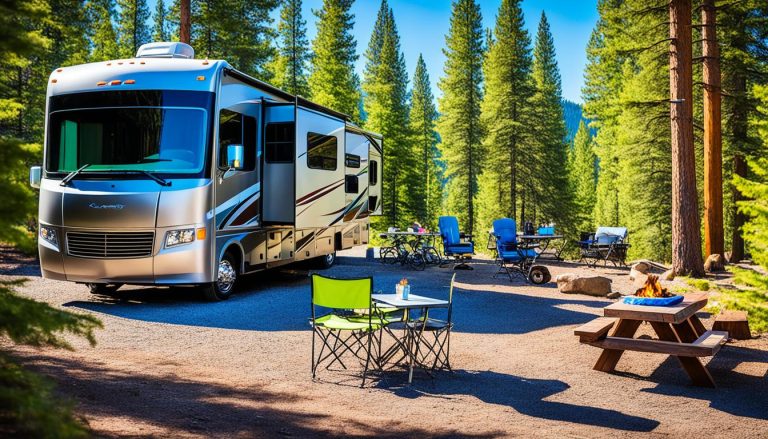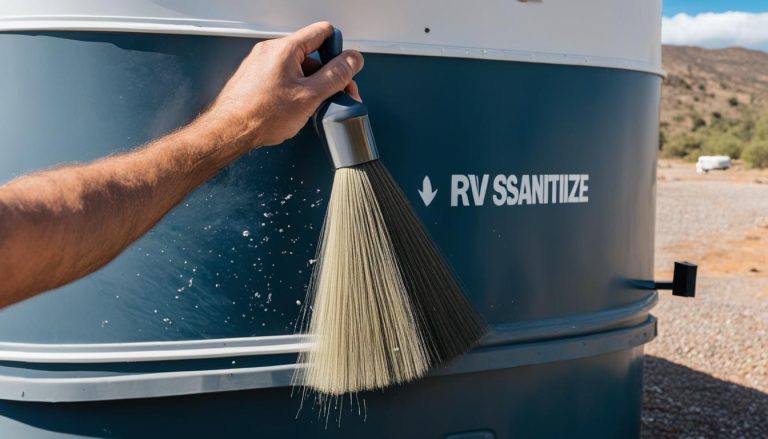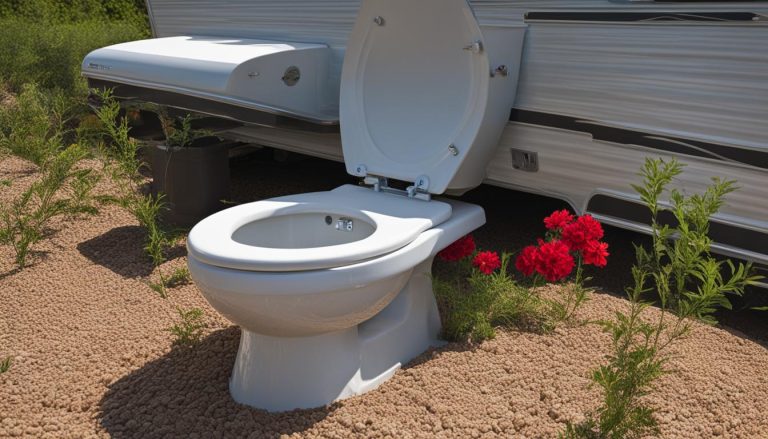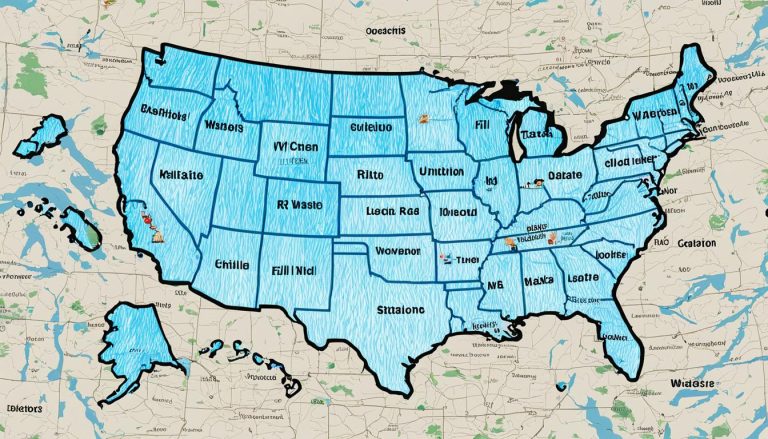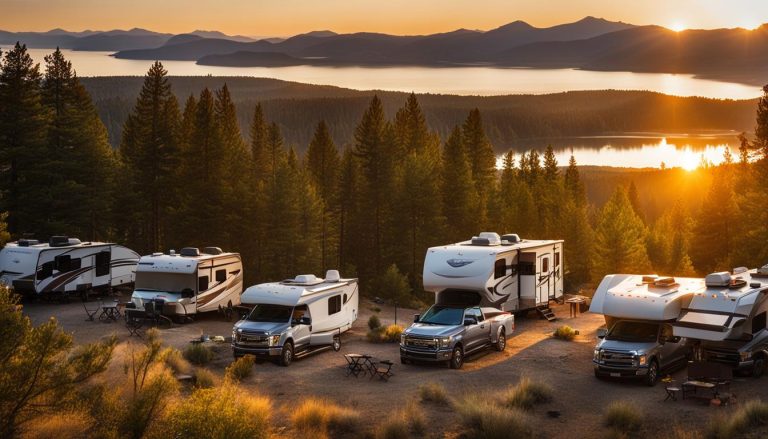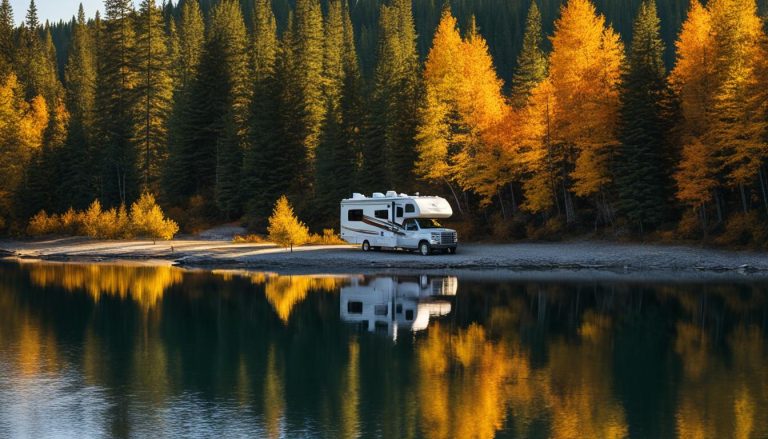Detecting a Bad RV Propane Regulator Easily
gorvlifestyle.com and its partners may earn a commission if you purchase a product through one of our links
Is your RV propane regulator causing issues with your LP gas system? A faulty regulator can lead to various problems with your propane appliances, such as the stove. It’s essential to identify the signs of a bad RV propane regulator so you can troubleshoot and resolve the issues promptly.
Here are some common problems to look out for:
Key Takeaways
- Yellow flames on propane appliances indicate low or high propane pressure.
- Popping noises when turning off the RV stove burner can be a sign of a bad regulator or a damaged burner.
- Heavy soot deposits around the water heater or stove may indicate a regulator issue, causing a weak or dirty flame.
- If you smell propane or detect leaks around the regulator, it indicates a damaged regulator that needs replacement.
- If there is no propane flow through the regulator, it may be due to a safety feature or a faulty regulator that needs replacing.
Stay tuned as we dive deeper into each of these issues and provide you with practical troubleshooting tips to help you maintain a properly functioning RV propane system.
Yellow Flames
One of the common signs of a bad RV propane regulator is yellow flames on propane appliances. Normally, the flame should be a strong blue color. If the flames are mostly yellow, it indicates that there is not enough pressure in the LP gas system.
On the other hand, if the flames are blue but making a roaring sound and are very tall, it indicates too much pressure. This could be caused by a leak in the propane system or a regulator that needs to be replaced.
It is important to address yellow flames promptly as they can be indicative of an issue with the propane pressure in your RV. Ignoring this sign can lead to inefficient burning and potential damage to your appliances.
Causes of Yellow Flames:
| Cause | Explanation |
|---|---|
| Low Propane Pressure | Insufficient pressure in the LP gas system can cause incomplete combustion, resulting in yellow flames. |
| Leaking Propane System | A leak in the propane system can disrupt the proper flow of gas, altering the flame color. |
| Malfunctioning Regulator | A faulty regulator can fail to maintain the required pressure, leading to yellow flames. |
If you notice yellow flames on your propane appliances, it is recommended to inspect and troubleshoot your RV propane regulator. This can involve checking for leaks, ensuring proper propane pressure, and considering a replacement if necessary.
https://www.youtube.com/watch?v=X83hvCy18QA
Popping Noises
One of the signs of a bad RV propane regulator is the occurrence of popping noises when turning off the flames on the RV stove burner. These noises can indicate issues with the regulator itself. However, it’s important to note that popping noises can also be caused by a damaged burner. To determine the root cause of the popping noises, consider the following factors:
- Regulator-related issues: If all the burners are producing popping noises when turned off, it is likely that the propane regulator needs to be replaced. A malfunctioning regulator can lead to abnormal gas pressure, resulting in these noises.
- Damaged burner: If the popping noises are isolated to one burner and not present on others, it’s worth inspecting the problematic burner for any dirt or misalignment. A damaged burner can also cause popping noises.
To ensure a safe and efficient propane system, it is recommended to address any issues related to popping noises promptly. This may involve replacing the RV propane regulator or troubleshooting the burner. By taking proactive measures, you can maintain the optimal performance of your RV propane system and enjoy a hassle-free camping experience.
Comparison of Regulator-related and Burner-related Popping Noises
| Signs of a Bad RV Propane Regulator | Causes |
|---|---|
| Popping noises occur on all burners when turned off | Malfunctioning propane regulator |
| Popping noises isolated to one burner | Damage or misalignment in the burner |
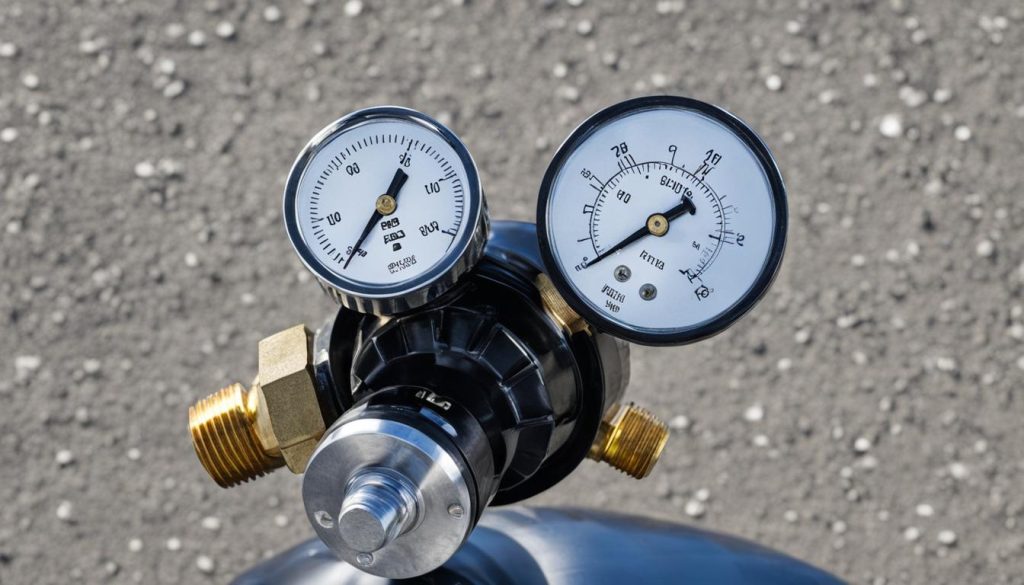
Signs of a Bad RV Propane Regulator: Heavy Soot Deposits
Propane is known for being a clean-burning gas that typically doesn’t produce significant amounts of soot. However, if you notice heavy soot deposits around your RV’s water heater or stove, it could be a sign of a bad propane regulator.
There are a couple of potential reasons for these soot deposits. First, it could be due to something in the burner that is causing incomplete combustion, resulting in the production of soot. Second, it could be a weak flame that is not burning the gas cleanly.
To troubleshoot this issue, start by adjusting the flame strength on your water heater. Sometimes, a weak flame can be the culprit behind the soot deposits. If adjusting the flame doesn’t resolve the problem and you continue to see heavy soot, it’s likely that your RV propane regulator needs to be replaced.
| Signs of a Bad RV Propane Regulator: Heavy Soot Deposits |
|---|
| • Presence of heavy soot deposits around water heater or stove |
| • Potential causes: incomplete combustion or weak flame |
| • Troubleshoot by adjusting the flame strength on the water heater |
| • If heavy soot continues, consider replacing the RV propane regulator |
Remember, a properly functioning RV propane regulator is essential for ensuring the safe and efficient operation of your propane appliances. If you suspect that your propane regulator is faulty, it’s crucial to address the issue promptly to avoid any potential safety hazards.
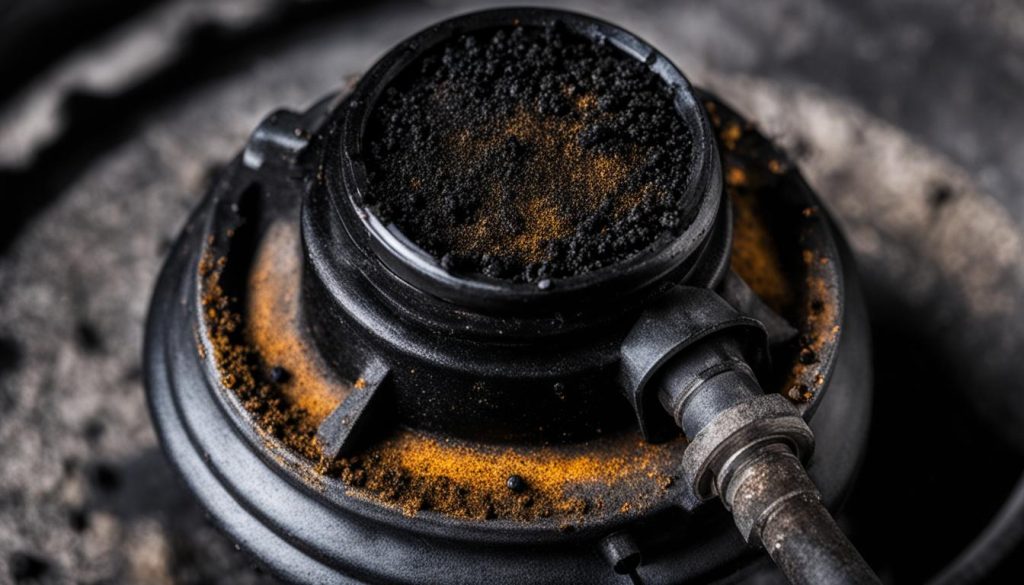
Venting or Leaking Regulator
One of the signs of a bad RV propane regulator is the presence of a propane smell. If you detect the distinct odor of propane coming from the regulator, it could indicate that the regulator is damaged and not sealing properly. This is a serious safety concern and should be addressed immediately.
To determine if your regulator is leaking, you can perform a simple test using a dish soap water mixture. Apply the mixture around the regulator and look for the formation of bubbles. If bubbles appear, it indicates that propane is escaping from the regulator, confirming a leak.
The vent at the bottom of all propane regulators serves an important safety function. It allows the regulator to breathe and prevents pressure buildup in case of overfilled propane tanks. However, if you notice propane coming from the vent, it indicates a faulty regulator that needs to be replaced. This is a clear sign that the regulator is not functioning properly and poses a safety risk.
No Propane Flow
If you’re experiencing a lack of propane flow through your RV propane regulator, it could be a result of a safety feature that detects a high propane flow and shuts off the valve to prevent potential hazards. To resolve this issue, follow these steps:
- First, turn off the propane tanks to ensure safety.
- Next, make sure all propane appliances in your RV are shut off.
- Wait for a few minutes to allow the regulator to reset.
If the problem persists after following these steps, it’s likely that you have a faulty RV propane regulator that needs to be replaced. A malfunctioning regulator can disrupt the propane flow to your appliances, affecting their functionality.
“When the propane flow is interrupted, it can be frustrating and inconvenient, especially when you rely on propane appliances for cooking, heating, and powering various devices during your RV adventures. It’s important to address the issue promptly to ensure your comfort and safety on the road.”
– RVPro Regulator Experts
Replacing the regulator with a new one will restore the proper propane flow and help you enjoy the full functionality of your propane appliances. Consult a professional or refer to the manufacturer’s instructions for guidance on selecting a compatible replacement regulator for your RV.
In addition to resolving the no propane flow issue, it’s crucial to periodically inspect and maintain your RV propane system to ensure its safe and efficient operation. Regular maintenance, including checking for leaks, cleaning burner components, and performing system tests, can help prevent potential problems and ensure a smooth camping experience.
| Signs of a Bad RV Propane Regulator | Description |
|---|---|
| No Propane Flow | Propane flow to the appliances is interrupted due to a faulty regulator or a safety feature |
| Yellow Flames | Flames on propane appliances appear yellow instead of a strong blue color, indicating low pressure |
| Popping Noises | Popping noises occur when turning off the flames on the RV stove burner |
| Heavy Soot Deposits | Excessive soot deposits around the water heater or stove due to an improperly burning flame |
| Venting or Leaking Regulator | Propane smell, leak detection, or venting from the RV propane regulator |
| Age of the Regulator | Regulator nearing or exceeding its 10-year lifespan, leading to malfunctions |
Age of the Regulator
Propane regulators play a crucial role in the functionality of your RV’s propane system. However, like any mechanical device, they have a limited lifespan. On average, RV propane regulators are designed to last around 10 years. Beyond this timeframe, the regulator may start experiencing issues, compromising its efficiency and safety.
As regulators age, they can suffer from deterioration due to exposure to the elements, fluctuating temperatures, and internal wear and tear. This deterioration can lead to malfunctions, resulting in problems with the propane flow and pressure regulation. It’s essential to be aware of the signs of a bad RV propane regulator and to take action if your regulator is approaching or exceeding its lifespan.
If you notice any of the signs indicating a faulty regulator, such as yellow flames, popping noises, heavy soot deposits, leaking or venting, or a complete lack of propane flow, it’s highly recommended to replace the regulator. Regularly replacing your RV propane regulator ensures the proper functioning of your propane system and helps maintain the safety of your RV and its occupants.
When replacing your RV propane regulator, make sure to choose a high-quality replacement from a reputable brand. It’s also advisable to consult your RV’s manufacturer or a certified RV technician to ensure that the new regulator meets the specific requirements of your RV model and propane system.
FAQ
How can I tell if my RV propane regulator is bad?
There are several signs that indicate a bad RV propane regulator. These signs include yellow flames, popping noises, heavy soot deposits, venting or leaking regulator, no propane flow, and age of the regulator.
What does it mean if I see yellow flames on my propane appliances?
Normally, the flame on propane appliances should be a strong blue color. If the flames are mostly yellow, it indicates that there is not enough pressure in the LP gas system. On the other hand, if the flames are blue but making a roaring sound and are very tall, it indicates too much pressure.
Why are there popping noises when I turn off the flames on my RV stove burner?
Popping noises when turning off the flames on an RV stove burner can indicate issues with the propane regulator. If all the burners are popping when turned off, replacing the propane regulator can fix the issue.
What causes heavy soot deposits around the water heater or stove?
Heavy soot deposits around the water heater or stove could indicate a bad RV propane regulator. It could be caused by something in the burner that is causing soot or a weak flame that is not burning cleanly.
How can I tell if my RV propane regulator is venting or leaking?
If you smell propane coming from the RV propane regulator, it may be damaged and not sealing properly. To check for leaks, you can use a dish soap water mixture and look for bubbles around the regulator. If propane is coming from the vent, it indicates a bad regulator that needs to be replaced.
What should I do if there is no propane flowing through the regulator?
If there is no propane flowing through the regulator, it could be due to a safety feature that detects a high propane flow and shuts off the valve. To reset the propane regulator, turn off the propane tanks and make sure all propane appliances are shut off. After a few minutes, the regulator should reset. If the problem persists, it indicates a faulty RV propane regulator that needs to be replaced.
How often should I replace the RV propane regulator?
Propane regulators have a lifespan of about 10 years. If the RV propane regulator is approaching or has exceeded its lifespan and is experiencing issues, it’s recommended to replace it. Regular replacement of the regulator can help ensure the proper functioning of the RV propane system.

